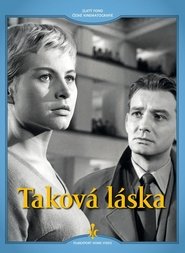Jiří Weiss (29 March 1913 – 9 April 2004) was a Czech film director, screenwriter, writer, playwright and pedagogue.
Jiří Weiss was born to a wealthy Jewish family in Prague. His father was a Czech patriot and named his son after Czech king Jiří of Poděbrady.His parents were Emil Weiss (1880–1942) and Martha Weissová (née Fuchsová; 1882–1944). Emil Weiss owned a liqueur factory in Libeň district. Since his youth, Jiří was an staunch communist, which was at the heart of disputes with his capitalist parents. As a young boy he was friends with Franz Kafka's niece Marianne Pollaková and thanks to her he was able to read the books of then-unknown writer Kafka in the 1920s.
Weiss was interested in studying at film school, but his parents wished he studied law. While still a minor, he left his home and lived with his friend K. M. Walló [cs]. Weiss started to work as a copywriter in advertising. His father, who disagreed with his life choices and could still make decisions about his underage son, had him institutionalized in a mental hospital. Weiss never spoke to his father ever again. In his early twenties, he started working as a copywriter for the Prague branch of Metro-Goldwyn-Mayer. At this time, he wrote his first book – a story for children O věrné Hadimršce. He befriended leading intellectuals of the Left Front in Prague, including Vladislav Vančura and Ivan Olbracht. In 1934, Vančura invited him to be an assistant cinematographer on his movie Marijka the Faithless, based on Olbracht's book.


